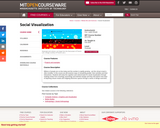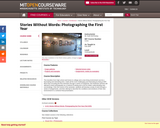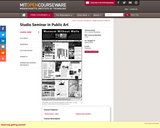
This book contains all of Smarthistory’s content for Ancient Greek art.
- Subject:
- Art History
- Arts and Humanities
- Visual Arts
- Material Type:
- Reading
- Provider:
- Smarthistory
- Author:
- SmartHistory
- Date Added:
- 10/26/2023

This book contains all of Smarthistory’s content for Ancient Greek art.

This book contains all of Smarthistory’s content for Sumerian, Akkadian, Neo-Sumerian / Ur III, Babylonian, Assyrian and Persian art.

This book contains all of Smarthistory’s content for the Ancient Roman art.

This book contains all of Smarthistory’s content for Italian art in the 1300s.

This book contains all of Smarthistory’s content for Italian art in the 1400s.

Supplementary work on individual or group basis. Registration subject to prior arrangement for subject matter and supervision by staff. From the course home page: Millions of people are on-line today and the number is rapidly growing - yet this virtual crowd is often invisible. In this course we will examine ways of visualizing people, their activities and their interactions. Students will study the cognitive and cultural basis for social visualization through readings drawn from sociology, psychology and interface design and they will explore new ways of depicting virtual crowds and mapping electronic spaces through a series of design exercises.

This class is jointly sponsored by the MIT Museum, Massachusetts Bay Maritime Artisans, the Department of Mechanical Engineering's Center for Ocean Engineering, and the Department of Architecture. The course teaches the fundamental steps in traditional boat design and demonstrates connections between craft and modern methods. Instructors provide vessel design orientation and then students carve their own shape ideas in the form of a wooden half-hull model. Experts teach the traditional skills of visualizing and carving your model in this phase of the class. After the models are completed, a practicing naval architect guides students in translating shape from models into a lines plan. The final phase of the class is a comparative analysis of the designs generated by the group.

The transition from high school and home to college and a new living environment can be a fascinating and interesting time, made all the more challenging and interesting by being at MIT. More than recording the first semester through a series of snapshots, this freshman seminar will attempt to teach photography as a method of seeing and a tool for better understanding new surroundings. Over the course of the semester, students will develop a body of work through a series of assignments, and then attempt to describe the conditions and emotions of their new environment in a cohesive final presentation.

Focuses on the production of visual art for public places outside the gallery/museum context. Readings and discussions that engage aesthetic, social, political, and urban issues relevant to this expanded public context complement studio production. Traditional approaches of enhancement and commemoration are contrasted to more temporal and critical methodologies. Historical models are studied and discussed, including Russian Constructivist experiments, the Situationists, Conceptual Art, and more recent interventionist tactics.

The focus of COMM543 – Visual Communication is on the use of visual media as a means for conveying information to an audience. In particular, we will limit our attention to the use of still imagery because of the vast, openly available repositories of visual media and the simplicity of manipulating them.
Table of Contents:
Introduction to Visual Communications
Deconstructing Visual Media
Organizing Principles
Visual Rhetoric
Visual Integrity: Misleading Messages, Ethics, and Credibility
Attribution and Credibility
The Basics of Copyright, Fair Use, and Creative Commons
Single Slide Examples
Transitions: Narrative and Visual
Exemplary Oral Presentational Communication
Image Gallery #1
Image Gallery #2